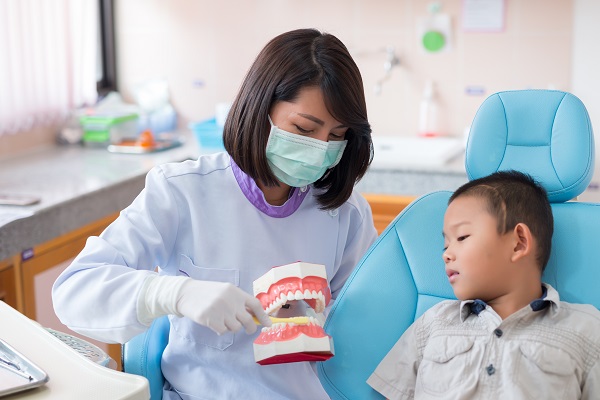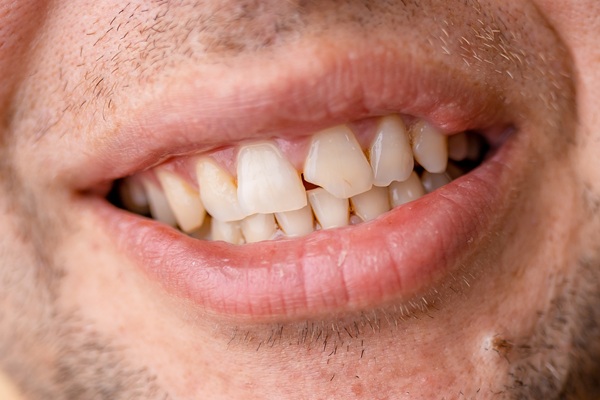Dentistry for Children: Take Your Child to a Preventive Dentist

Every dental practice understands the essence of preventive care, which is why we recommend taking your child to a preventive dentist. Preventive dentists do not seek to treat regular oral issues, they also want to avert their occurrence. Preventing issues such as cavities from happening means undergoing fewer dental procedures and a lasting natural smile that will prove beneficial in life.
The preventive care processes
The most effective way to help a child prevent common oral health conditions is with regular dental cleanings. Dental experts recommend taking the child to visit the dental office every six months. During the cleaning appointment, dental tools will be used to clean away any food debris around the teeth and gums.
The cleaning process helps to eliminate bacteria and plaque. When plaque accumulates on the teeth, cavities form and eventually causes gum disease. Keeping the teeth clean of the debris is essential for the patient’s oral health and wellbeing.
The child’s dental appointment will also include a thorough dental evaluation by the preventive dentist. For the evaluation, the child’s dentist will carefully check the state of each tooth while concurrently looking for signs of any common dental issue. X-rays of the child’s dentition may need to be taken for a thorough diagnosis.
Often, the physical evaluation does not give sufficiently detailed information on the patient’s oral health. However, with the images from the X-ray device, the dentist will fully understand the condition of the teeth.
After the child’s dental appointment, the kid-friendly dentist will share their findings with you. If the child requires no extra treatment, then no other appointment will be necessary until after six months. If the child needs treatment, however, the dentist will discuss the child’s treatment options with you and alleviate your concerns.
The preventive dentist will teach you how to properly care for your child’s oral health, including tips for correct flossing and brushing. They can help your child adopt healthy habits early to ensure excellent dental health throughout their lifetime.
Preventive care options
Dental sealants
To prevent your little one from experiencing dental cavities, the preventive dentist may recommend dental sealants. This procedure offers physical protection through the application of a special liquid on the teeth’s chewing surfaces. The treatment takes only a few minutes, but the protection it offers can last for several years.
Custom-made mouth guards
If your child participates in sports, the preventive dentist can provide mouth guards to protect the child’s mouth from injury.
Toothpaste and mouthwashes
Rinsing the mouth with antibacterial rinses, along with regular brushing and flossing is essential for preventing plaque buildup before it causes gum disease. The preventive dentist can give the child a floss for extra protection.
In conclusion
If your child does get dental caries despite going to a preventative dentist, then the dentist will use composite fillings to fill the gap. With composite fillings, dental decay can be treated without leaving any obvious scar. Tooth-colored fillings are preferred because they can be customized to be identical to the appearance of the natural teeth. This makes it hard to distinguish the treated tooth after the treatment.
Request an appointment here: https://www.lilburnfamilydentistry.com or call Lilburn Family Dentistry at (770) 800-0178 for an appointment in our Lilburn office.
Check out what others are saying about our services on Yelp: Read our Yelp reviews.
Recent Posts
Dental crowns are restorations that can address a range of dental issues, from severely damaged teeth to protecting a tooth after a root canal. They help preserve oral health and enhance a smile's appearance. In addition to being versatile, they are available in different materials, which can be helpful for individuals who want options.Dental crowns…
A broken tooth is a common dental issue that can happen for many reasons, such as accidents, biting into something hard, or untreated tooth decay. Whether a dentist can save a broken tooth or needs to remove it depends on how severe the damage is and how quickly patients seek treatment. While modern dental techniques…
Dental crowns are a popular dental restoration, effectively preserving and enhancing the function of damaged or weakened teeth. These custom-made caps are designed to fit over the existing tooth, providing both structural support and improvements in your smile's appearance. However, not all dental crowns are created equal. The type of dental crown you choose can…
Your dentist can help determine if you need dental crowns. There are many reasons for getting these restorations. The main goal is always to restore the tooth and enhance its functions. Here are the signs you may need dental crowns soon.Losing at least one tooth can cause more dental problems. It can lead to dental…


